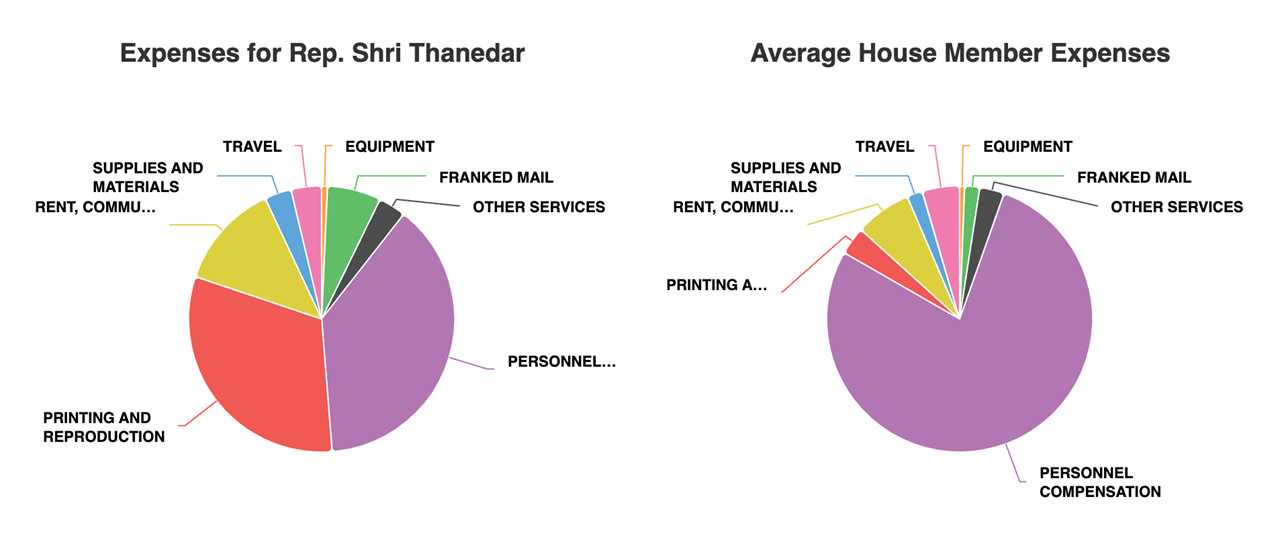Bryan Metzger
- Rep. Shri Thanedar's face is splashed across several billboards in the Detroit area.
- They're funded with at least $45,460 in taxpayer dollars via a practice known as "franking."
- Thanedar says it's to help constituents know their congressman. But he's also facing a primary.
If you're driving down a highway in the Detroit metro area, you're likely to come across at least one of them: a shiny billboard featuring Democratic Rep. Shri Thanedar's smiling face.
"REACH CONGRESSMAN SHRI 24/7," the tower advertisement typically blares alongside a link to Thanedar's official House website.
But while the billboards are likely to boost Thanedar's profile and name recognition as he faces a competitive primary in Michigan's 13th congressional district, they're not paid for by his campaign.
They're paid for by Thanedar's congressional office — which is funded via taxpayer dollars.
It's unclear exactly how much of his office budget is going toward billboards. The congressman did not provide an exact figure to Business Insider, and records filed with the House of Representatives covering 2023 aren't entirely clear.
But those records show that Thanedar's office spent nearly $327,000 on advertising in 2023, $45,460 of which went directly to two billboard companies: Lamar and Outfront Media.

Bryan Metzger
Lawmakers have to communicate with their constituents, and that does cost money. But Thanedar's spending habits highlight the gray area that's long existed when it comes to so-called "franking" — an antiquated term that once referred to a lawmaker's signature on a piece of mail but now refers to all forms of taxpayer-funded mass communication by congressional offices.
In a statement to Business Insider, Thanedar attributed the billboards and other mass communications to the state's 2022 redistricting, noting that his current district includes portions of previous districts represented by Democratic Reps. Rashida Tlaib and Debbie Dingell, as well as former Democratic Rep. Brenda Lawrence.
"My office received calls from constituents of neighboring congresswomen and vice versa," said Thanedar. "To address this, we significantly ramped up our outreach efforts through various media."
Daniel Schuman, the director of governance at the POPVOX Foundation, said that the appropriateness of such spending comes down to factors like timing and the particular circumstances of the district's geography.
"Is it appropriate for a member to buy a billboard?" said Schuman. "The answer, I think, is that it depends."
House records show that Thanedar's taxpayer-funded payments to billboard companies began in October, after it had become clear that he would face a challenge from State Sen. Adam Hollier, who Thanedar defeated in the crowded 2022 Democratic primary.
The rules around 'franking'
"Franking" has long been a gray area within American politics. The practice dates back to the country's founding, when government officials could use their signatures to disseminate information via the postal system without having to pay for stamps.
Lawmakers still send mail to their constituents, but that's not all they can do with taxpayer money. They can also send texts and emails, cut radio ads, and even create billboards and TV ads.
There are clear rules barring members of Congress from using franking for overt political or campaign purposes, which are enforced by the House Communications Standards Commission and the Senate Ethics Committee.
In other words, lawmakers can't use taxpayer money to create materials asking voters to support them in an upcoming election.
Furthermore, lawmakers are prohibited from sending unsolicited mass communications for 60 days before any primary or general election — meaning Thanedar's billboards will have to come down by June 7, which is 60 days before Michigan's August 6 primary elections.

Bryan Metzger
There are currently no strict guidelines around the amount of money that members of Congress can spend on advertising — they just have to balance it against other expenses, including staff compensation, in their office budgets, which average roughly $1.9 million in the House and $4.1 million in the Senate.
The Michigan congressman is by no means the only member of Congress to blur the lines when it comes to franking.
Republican Rep. Bill Timmons of South Carolina has reportedly increased his own congressional office spending as he's faced a primary challenge from the right, and Democratic Rep. Sheila Cherfilus-McCormick is facing a House Ethics Committee probe that may relate to taxpayer-funded TV ads that closely resemble her campaign ads.
But Thanedar's office appears to spend way more than the average House office on "franking." And there's little doubt the billboards help boost his profile.
"If it's just a billboard with your name and the URL… maybe that's a way of encouraging people to contact the office," said Schuman. "Does that work? I don't know. It could be just about name recognition."
'Money spent on this takes away from other things'
According to data from Legistorm, the average House office spent almost 78% of its budget on staffer compensation in 2023 — which accounted for just 38% of Thanedar's budget. On the other hand, the Michigan congressman spent 31.4% of his budget on printing and reproduction, nearly 10 times more than the average of 3.4%.
"My perspective is that there should be limits for the amount of money that you can spend on [franking]," said Schuman. "Money spent on this takes away from other things, like staff salaries."

Legistorm
HuffPost previously reported that Thanedar has faced scrutiny over the large amounts of money he puts towards advertising, with sources telling the outlet that the billboards felt "more like campaign self-promotion than official communication."
Thanedar now faces a primary challenge from Hollier, who's been endorsed by Michigan Secretary of State Jocelyn Benson, former Rep. Brenda Lawrence, and a bevy of state lawmakers and local officials.
The congressman has faced allegations from neighboring Rep. Rashida Tlaib of providing poor constituent services, and detractors of the congressman argue that the majority-Black district Detroit district should be represented by a member of that community.
"While he is busy posting memes, his residents are calling my office asking for my assistance because he is absent from doing his job," Tlaib told the Detroit News in October.
Thanedar countered that in a statement to Business Insider on Thursday, saying his office has "quadrupled constituent calls" in the last year and resolved 84% of the more than 1,400 constituent cases his office has received.
"We are proud of our communications to our constituents, and in recent surveys, over 70% of our constituents rated our service fair to excellent," said Thanedar.
Read More
By: [email protected] (Bryan Metzger)
Title: The questionable way lawmakers get taxpayers to fund borderline-political ads
Sourced From: www.businessinsider.com/shri-thanedar-tax-money-billboards-ethics-franking-2024-3
Published Date: Thu, 21 Mar 2024 19:02:00 +0000
Did you miss our previous article...
https://trendinginbusiness.business/politcal/30-super-cute-womens-clothing-and-shoe-deals-from-amazons-huge-spring-sale
.png)





